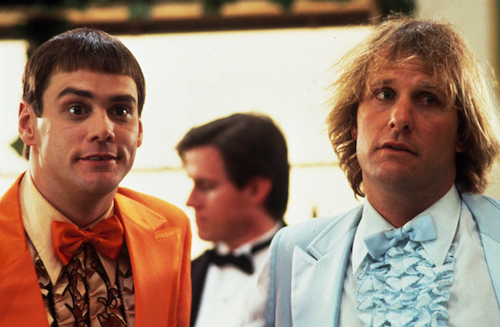It would not be overly dramatic to say that when I first read Mr. Money Mustache’s “shockingly simple” blog post, it was as if I had been hit by a bolt of lightning.
The simplicity of the math. The fundamental soundness of the assumptions. And the far-reaching implications of its conclusions were all immediately gripping, and quite literally, life-changing.
More importantly, The underlying philosophy was profound. I ruminated on the meaning of the post for days.
The message jibed with my own personal history, such as the lifestyle inflation I experienced upon finishing my medical training and becoming a full-fledged physician (and the surprising lack of additional happiness that my additional consumption brought me.)
Concepts like compound interest and the importance of savings spoke to me in a more immediate way than they ever had before.
The idea of shrinking my own footprint, focusing on the things that truly made me happy, simplifying my life, and becoming more efficient all resonated with me immediately.
And in the end the message could not have been clearer: Spending money was spending freedom. And freedom was far too valuable a resource to be frittered away.
But then, I was primed for this message of badassity.
A few months earlier, horrified at having to spend $8000 to fly my family of five to visit my in-laws in Japan, I had discovered the miles game.
And I became a little bit obsessed with it.
Okay, maybe more than a little obsessed…
The point being that I was already a believer in the idea that clever changes in my own spending habits could lead to outsized values in my life.
And over time my obsession with the miles game fused into my new pursuit of early retirement, and became a single obsession with two interlocking pieces.
Which is really what this post is about.
In my mind playing the miles game, and pursuing early retirement are two sides of the same coin.
The miles game had the potential to end up being nothing more than the empty pursuit of luxury; simply using cleverness to buy fancier experiences with the same amount of money.
But when the savings from the miles game were plugged into investments in one’s own financial freedom, this new cocktail had the potential to become a turbocharged freedom delivery device.
Which is really my central thesis here:
Every Mustachian should (at least) consider playing the miles game. There is simply too much value to be added to one’s life by playing it.
But I’m getting ahead of myself. I should probably start with some definitions.
The miles game
(AKA travel hacking.) This is the pursuit of nearly free travel using hotel and airline loyalty currencies accumulated and spent in clever ways. There are three main aspects to the miles game. Credit card churning, manufactured spending, and redemptions.
Credit card churning
(AKA app-o-ramas) When it comes to collecting big-time miles and points, there is no bigger well to draw from then credit card signing bonuses. A good signing bonus has a minimum cash value of somewhere between $500 and $1,000, and surprisingly you can successfully apply for between six and eight cards at a time every three or four months.
Manufactured spending
(AKA pseudo-spending) There is one little thing about applying for multiple credit cards at a time. In order to collect your bonuses you must often spend between $15,000 and $20,000 in three months. For a mustachian this can be particularly perplexing (for obvious reasons.) Manufactured spending refers to spending lots of money on cash equivalents like gift cards, in order to simulate spending. I like to call manufactured spending “pseudo-spending lots of money on lots of nothing.”
Redemptions
Once you’ve built up a hefty stash of miles, it is then your job to spend them wisely.
There are multiple flexible currencies that can be transferred to multiple airline and hotel partners.
There are multiple airline alliances that allow for different sweet spots for different award destinations.
There are distance-based miles programs, revenue based miles programs, and zone-based Miles programs.
And for the miles game player all of this complexity leads to a very happy conclusion: terrific bargains to be had in exchange for just a little bit of knowledge and the willingness to do a bit of research.
So if at this point the miles game sounds too good to be true, there are a couple of points that’s need to be made:
It isn’t too good to be true. (Though it is remarkably profitable.)
and
There are some reasons for you to consider not playing the miles game.
The three main ones are:
Credit card debt.
Though this point is unnecessary for most established Mustachians, some new recruits are busy working off their debt from their pre-enlightenment days.
The only way the miles game is even remotely worth it is if you pay off all of your credit card bills in full every month and never pay a dime of credit card interest. (There’s a name for miles game players who carry credit card debt: suckers.)
Carrying tuxedo debt on your credit cards to get points; not smart…
So, if you are carrying credit card debt now, let the miles game serve as your carrot to motivate you to grab that fire extinguisher and point it squarely at your hair (which is on fire, after all).
Poor Credit Score:
In order to score the big bonus credit cards, you must have a good credit score (at least above 700.)
If your credit score is not so hot, improving that should be your first priority.
If that is the case, (or even if it is not) I would recommend opening free accounts at creditsesame.com and creditkarma.com and getting a free copy of your credit report at annualcreditreport.com before ever considering your first credit card churn.
Upcoming big purchase.
Surprisingly, playing the Miles game is generally not detrimental to your long term credit score. Despite this, you will often see a temporary 2 to 7 point drop in your credit score for each hard credit check that accompanies each card application.
If you are in the market for a large purchase such as a home, securing a low interest rate loan should be your first priority. The miles game is simply not worth an extra point or two of interest on a 30 year home loan.
 Finance your mustachian mcmansion first…
Finance your mustachian mcmansion first…
But the question remains, why specifically should mustachians play the miles game?
And couldn’t the miles game be seen as a trapdoor into a luxury trap?
My answer is that while the miles game may have some small negatives from the early retirement planning perspective, there are too many large positives that far outweigh them.
So here then are the top five reasons for Mustachians to consider playing the miles game.
1. Travel is expensive
To even the most frugal among us, travel is an expense that rears its ugly head from time to time.
Family illnesses, friend’s weddings, and funerals are all reasons why one might have to travel at the last minute.
In my case I am married to a Japanese woman, so it is a priority for us to fly over as a family of five each year to maintain our children’s language skills and to keep current our close relationships with my wife’s family.
Hell, even the main mustachioed man himself has copped to flying to Ecuador and Hawaii, zigzagging across the country by train, and flying with his family to Canada with some frequency.
In order to understand the power of the miles game, one need only look back at last years expenses to see how much money was spent on travel.
Now take that money and compound it over 20 years at a 5% real return. How much retirement money does that make?
In my case we previously spent over $16,000 in travel a year. Now we spend less than $1000. So that $15,000 saved and compounded works out to about $39,800 in our nest egg in 2034.
So the savings from one year of the miles game, in my case, should support about one year of our living expenses 20 years from now.
Which is pretty great, no?
2. Retirement travel.
For many, early retirement is synonymous with a period of slow travel around the world.
But as mentioned above, travel is expensive, especially on a fixed income.
In many cases, living expenses go down once the early retiree arrives at his destination. But the travel costs can make getting to a far-off land a steep hill to climb.
Although the miles game may have to be scaled back somewhat when one’s income is less in retirement, I have no doubt that It can continue to be played for many years after financial independence has been achieved.
That’s certainly my plan.
3. Good financial habits.
As mentioned above in the section on who should not start playing the miles game, there are some important requirements to reach before ever embarking on the miles game journey.
Tracking your finances, keeping an eye on your credit score, and not carrying credit card debt all have benefits that extend far beyond miles game.
And through the natural feedback mechanism of the miles game, players can’t help but notice that their newly improved financial habits inevitably lead to free travel and more money in their stash.
Talk about a virtuous cycle…
4. More Mustachian muscles
Just as riding a bike instead of a driving a clown car builds up your actual muscles and metaphorical frugality muscles, playing the miles game builds up your financial savvy
And really expands your financial toolbox.
As an example, I wrote here about a strategy to use nothing but the miles game as “springy debt” in order to replace (A.k.a. allow you to invest) your emergency fund.
The point is not that this is a wise strategy. (I don’t think it is.) The point is that playing the miles game gives you skills that allow you to access capital in clever ways. Which is a very useful skill set to have when pursuing early retirement.
5 Tax efficiency
One of the most under appreciated qualities about miles and credit card bonuses is that they are generally not treated as taxable by the IRS.
This means that if you save a thousand dollars on travel that you would’ve otherwise spent, this ends up being equivalent to tacking on an additional $1000 to your paycheck after taxes.
Before retirement, the higher your income, the more powerful this effect is.
But even after retirement your tax efficiency is very much tied to your ability to spend less and claim less in earned income. (Your earned income in retirement will have dramatic effects on how much in taxes you must pay on qualified dividends, Social Security income, and retirement income.)
And beyond all of these rational reasons to play the miles game, there exists one additional reason to play the miles game which is equally important.
Piecing together your strategy is not unlike a giant puzzle. It is a lot of fun, and really opens up your world to new and interesting possibilities.
Simply put, the miles game is happiness inducing.



17 Responses to “A Most Mustachian Endeavor”